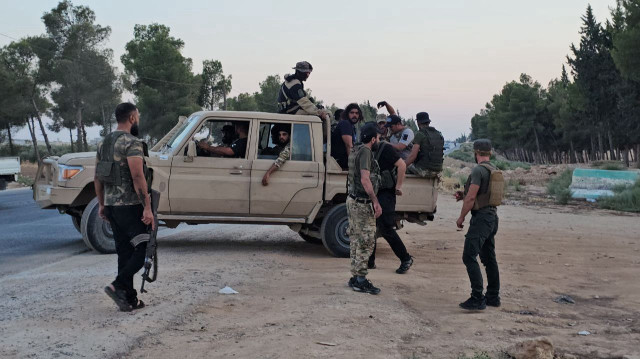
Walid Jumblatt's statements came during extraordinary meeting by General Assembly of Druze Sectarian Council at sect's headquarters in Beirut
Lebanese Druze leader Walid Jumblatt called for a ceasefire Friday in southern Syria's Suwayda, as a prelude to dialogue between local actors and the state to resolve the crisis.
Jumblatt's statements came during a speech he delivered at an extraordinary meeting held by the General Assembly of the Druze Sectarian Council at the sect's headquarters in Beirut to discuss the repercussions of the deteriorating situation in Suwayda and to adopt a unified stance.
He demanded the formation of an investigation committee into the recent events in Suwayda, which he affirmed is an “inseparable part of Syria.”
“I propose a ceasefire in southern Syria to initiate dialogue between the state and Suwayda's community” to end the crisis, he said.
At the same time, he demanded condemnation of recent Israeli attacks on Syria and the daily assault against Lebanon.
Violent clashes erupted last Sunday between Bedouin and Druze groups in Suwayda, prompting intervention by the army and security forces to restore stability in the governorate.
“We must exercise reason before issuing positions or condemnations regarding what is happening in Syria,” the Lebanese Druze leader added.
Jumblatt rejected calls for separation by some in Suwayda.
He also denounced the positions of some Druze factions in Suwayda, which contributed to escalating the situation there.
Israeli forces launched airstrikes on Wednesday on more than 160 targets across four areas of Syria -- Suwayda, Daraa, Damascus and the Damascus countryside -- killing three people and injuring 34 in the capital alone.
On June 13, clashes broke out between Bedouin Arab tribes and armed Druze groups in Suwayda. The violence escalated, leading to deadly attacks by Druze fighters on Syrian security forces deployed in the area. Dozens of soldiers were reportedly killed.
A temporary ceasefire was reached between government forces and local Druze factions but that soon collapsed. Israeli airstrikes followed, targeting Syrian military positions and infrastructure.
Israel has cited the “protection of Druze communities” as a pretext for its attacks in Syria, especially in the south.
Most Druze leaders in Syria, however, have publicly rejected any foreign interference and reaffirmed their commitment to a unified Syrian state.
Following the fall of Bashar Assad in December 2024, Israel intensified its air campaign in Syria and declared a buffer zone between the two countries defunct, alongside a 1974 Disengagement Agreement.
Assad, Syria's leader for nearly 25 years, fled to Russia in December, ending the Baath Party regime, which had been in power since 1963.
A new transitional administration led by President Ahmad al-Sharaa was formed in Syria in January.







